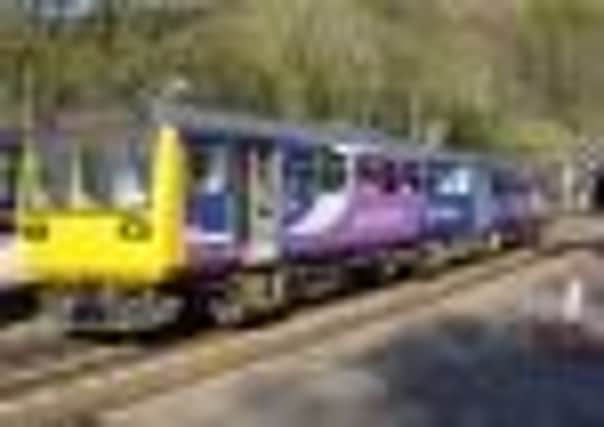Action on cable theft aimed at easing rail delays


Cancellations on the rail network have become weekly occurrences as rising metal prices have made cable theft a lucrative industry for organised criminal gangs in Yorkshire and beyond.
But the stolen metal is no good to criminals unless they can find unscrupulous buyers for it, and it is this illegal trade that police intend to smash by gaining new powers from a review of the 1964 Scrap Metal Dealers Act.
Advertisement
Hide AdAdvertisement
Hide AdPlans to update the Act, which carries a maximum fine of only £1,000, have been welcomed by train companies and campaigners who say thefts are blighting the region’s economy.
At a time when some companies face their most difficult trading conditions for decades, many share the view of the Leeds, York and North Yorkshire Chamber that “any delay to rail journeys is bad for business and bad for productivity”.
The problem has cost Network Rail, which owns and operates Britain’s railway infrastructure, £43m over three years.
It is also highly dangerous – 10 people have been killed in metal theft incidents in the last year.
Advertisement
Hide AdAdvertisement
Hide AdPassenger Focus chief executive Anthony Smith said: “It is a huge industry cost and passengers, who already pay high fares, do not want to have to pay more to fix the line because of these criminals.
“We have been advised that the industry is taking this seriously and are trying to get tougher legislation introduced.
“However, when incidents do occur the train operators need to ensure passengers get timely and accurate information.”
A spokesman for the Association of Train Operating Companies (ATOC) said: “Cable theft has delayed passengers by 365,000 minutes over the course of the last year and that is before you take into account cancellations.
Advertisement
Hide AdAdvertisement
Hide Ad“It has been a problem in Yorkshire for quite a long time and the East Coast Main Line has been targeted a lot over the last six months, but these cases are now starting to happen all over the country.”
British Transport Police recorded an 83 per cent rise in offences related to cable theft in Yorkshire and the North-East last year.
The ATOC spokesman added: “Stealing a lot of cable near a big city like Leeds or Sheffield or York can cause major disruption.
“Immediately, all the signals go red to make sure it does not cause a safety issue and that process forces all the trains to stop and causes cancellations.
Advertisement
Hide AdAdvertisement
Hide Ad“We want increased regulation to stop metal thieves, particularly some kind of licensing regime to make sure there would be a requirement on the dealers to reduce the risk that the metal they are receiving is stolen.”
Help might arrive in the form of Operation Tornado, a trial beginning in December that will require anyone selling metal for cash to show photographic ID and proof of their address.
Traders who sign a voluntary code of conduct will have to hold those details for 12 months, and scrapyards must upgrade closed circuit TV systems so police can more easily identify sellers and their vehicles.
The man leading the trial for British Transport Police and the Association of Chief Police Officers, Chief Insp Robin Edwards, said it had the support of the metal recycling industry.
Advertisement
Hide AdAdvertisement
Hide AdIt will also involve the Environment Agency the Department for Work and Pensions, Trading Standards and the Vehicle and Operator Services Agency.
Chief Insp Edwards said: “The trial is happening in the North East region, but it will probably have an impact on North Yorkshire and Cumbria as well.
“I feel confident that, if the industry supports it, it could be rolled out nationally because there is a lot of interest in it.”
The Yorkshire Post revealed last month that the region’s churches had made insurance claims totalling £6m since 2007 as a result of metal theft. Repairing buildings and replacing grate covers has cost Yorkshire’s councils more than £2.3m over five years.
Comment: Page 10.